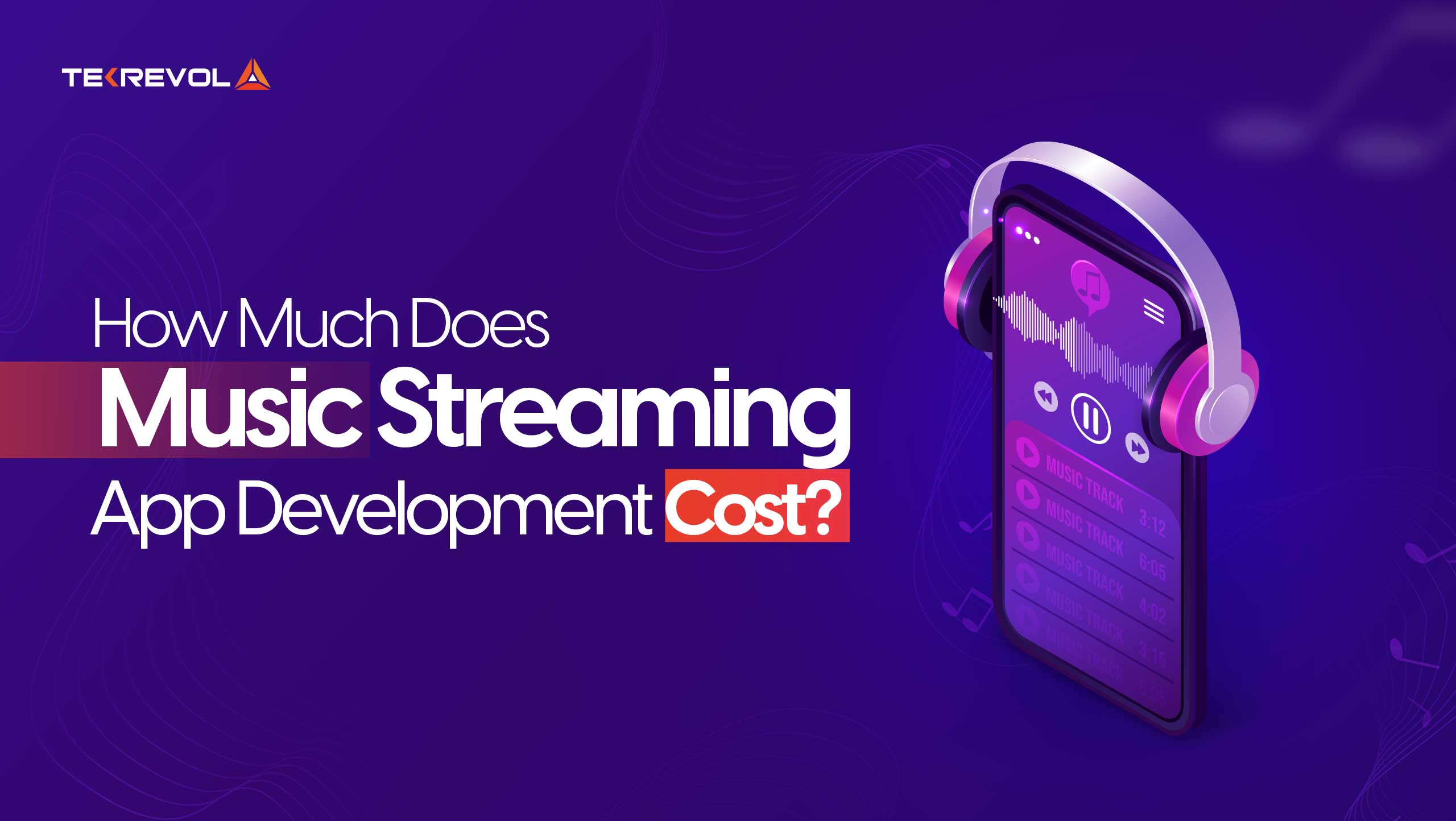Quantum technology is built for the rapidly evolving and forward-thinking organizations – for those who are willing to capitalize on emerging tech trends to pivot to a whole new level.
And just where companies are adapting to quantum technologies, quantum app development companies are advancing dramatically by experimenting with cloud-based and hybrid quantum computing.
This quantum app development or product development initiative is not only helping businesses position themselves as the early adopter in the market but also, it’s enabling them to unleash powerful innovation by leveraging quantum.
In the last few years, Quantum technology has gained momentum.
If you’re some who keeps an eye on the trending tech news, you may have already seen numerous research popping up all over the internet enabling entrepreneurs to see quantum technology in action.
Most of them either consists of breakthrough announcements related to quantum app development solutions or about companies adopting it to gain a competitive edge.
We’ll also be focusing on the potential of quantum technology in terms of it solving diseases with a little help from AI and breaking down complex data into valuable pieces of information.
Additionally, from a quantum app development services standpoint, companies are integrating quantum tech to the core processing of applications.
This integration is enabling them to make the leap and take the lead in the market.
So, without any further ado – let’s start exploring the different tangents of quantum computing and how it is revolutionizing the mobile application industry.
Quantum Computing – The When What & Why
The When
Quantum computing was first proposed by Paul Benioff in 1980. He designed a quantum mechanical model of the Turing machine.
Richard Feynman, another theoretical physicist, and Yuri Manin, a mathematician, both realized the potential of quantum technology.
They suggested that quantum computers could possibly perform functions that a conventional computer could not do.
And in approximately 40 years, the technology was further researched and commercialized.
Tech giants today have access to this spectacular technology and its implementations are giving rise to new opportunities while solving critical challenges in different industries.
From quantum app development suppliers to quantum app development tools, the industry today is filled with accessibilities that can be harnessed to comprehend and build quantum app development solutions.
The What
Quantum computing or technology whichever terms you refer to relates to the process of utilizing properties of quantum mechanics (physics of sub-atomic particles). The process includes quantum entanglement and quantum superposition.
I know the definition made your head spin so let me make it a little more comprehendible.
Quantum computing or technology enables computers to process massive amounts of datasets instantly.
The technology requires semiconductors that utilize quantum physics to work.
Where traditional computers use binary values “0” and “1”, Quantum computers use qubit and quantum mechanics to speed up the process of solving sophisticated computations.
The advanced mechanism is also capable of redesigning the entire cybersecurity architecture, breaking codes, and even encrypting communications.
The chain created during the entire computation process by Quantum tech has an unlimited number of variables hence, the speed, performance, and agility of quantum applications far surpass any tradition or high-tech devices.
The Why
Why, after 40+ years, is the world talking about quantum technology?
It’s because like Nikola Tesla said, “A new idea must not be judged by its immediate results” quantum technology, over the years, has become an integral part of our daily lives.
We’re almost there when it comes to controlling quantum superposition and entanglement.
Tech companies i.e., Google, IBM, Intel, Alibaba, and more, are exploring the different facets of quantum technology to create every day assets for people.
Moving on, did you know that there are types of quantum computing?
There are! And we’re about to skim through all of them in the next few scrolls.
The Different Types of Quantum Computing
Here’s a spoiler before getting directly into the types of quantum computing.
The primary difference between the different types of quantum computing is of the processing power/qubits, number of apps and time required to make it commercially viable.
Let’s hop on to the types:
- Quantum Computers
- Quantum Simulations
- Quantum Annealing
1. Quantum Computers

Quantum computing is the type that significantly contributes in creating new and powerful ways of computing.
From a building standpoint, Quantum computers are perhaps the most difficult to build among the three types mainly because of their capabilities.
Using over 100,000 qubits and estimating it at 1M qubits, Quantum computers direct machines to let users perform highly complexed computing tasks efficiently ensuring zero error.
You can also get the power of Quantum computing in the palm of your hand by getting quantum app development solutions for your business.
The process also involves the usage of Quantum Annealing and Quantum Simulations.
2. Quantum Simulations

Quantum simulations are more inclined towards identifying issues with quantum physics.
They enable you to dive deeper into the issues as compared to what a conventional system’s capacity would let you to do.
However, with Quantum Simulations, we’re literally stepping into the world of physics and chemistry because the majorly application of this technology is in the industries that deal with Subatomic particles and quantum chemistry.
The Quantum simulators involved in the above-mentioned industries serve particular purposes i.e., folding protein which, by the way, is one of the toughest tasks that arise in the biochemistry domain.
Folding protein led to effective medication hence, there’s a high probability of Quantum simulations playing a critical role in drug testing in the future.
Steve Jobs once said, quote: “I think the biggest innovations of the 21st century will be at the intersection of biology and technology.”
He said this long before Quantum technology had made unfathomable feats possible.
Therefore, it’s implied that the technological revolution with Quantum simulations is yet another revolution coming which will innovate the globe.
3. Quantum Annealing

Quantum Annealing is generally used for solving sophisticated optimization-related challenges.
For more than a decade, Quantum Annealing is being ideated and iterated by professionals with the objective being to discover more effective possible combinations of variables.
The best example of Quantum Annealing can be the collaboration of Volkswagen, Google and D-Wave Systems. The automotive and tech giants recently conducted an experiment that involved the usage of Quantum technology to optimize the flow of traffic in Beijing.
The heavy research involved in the experiment resulted in the discovery of algorithms capable of significantly reducing traffic through Quantum Annealing.
Some other examples of the deployment of Quantum Annealing in different industries include airports, routing, cost of fuel optimization, information receiving and sending, weather mapping, and logistics.
The Highlights
- Quantum computers are revolutionizing the field of intelligence.
- Researchers are still designing modern algorithms to make work even more efficient.
- Two of the most widely used algorithms in Quantum computers is Shor’s algorithm (designed for factoring numbers) and Grover’s algorithm (designed for searching through complex and huge datasets).
- Physicists can use Quantum simulations to identify properties of physics.
- Quantum Simulations is also capable of simulating challenging phenomenon that takes place in the chemical industries i.e., Folding protein.
- Quantum AI is a kind of recombinant innovation that is far more effective than traditional computers.
- Quantum Annealing is the exploration of algorithms that address various optimization problems.
- The modern designed algorithms of Quantum computing are capable of mimicking the building blocks of quantum machine learning.
- The integration of Quantum algorithms in different industries can save time, processes, and more
The Unparalleled Benefits of Quantum Technology
Quantum Technology has proven itself to be a disruptive force that is giving rise to several possibilities.
And there are some significant reasons/benefits due to which Quantum computing is being integrated to the entire business industry.
Let’s explore the benefits one by one:
- The first and perhaps the most obvious advantage of quantum computing is that sophisticated tasks can be conducted in a far more accurate, efficient, and speedy manner as compared to conventional computers.
- Qubits placed in a conventional superposition state add much more speed and agility to Quantum computing.
- Complex calculations, simulations, projects and more can be carried out easily through Quantum computers.
- Quantum computers not only perform sophisticated tasks but can also be used for conventional tasks performed by traditional computers.
- Interested in creating a Quantum application?
- Learn everything you need to know about the types of Quantum apps, current market trends, technical aspects, and much more in our articles.
The Hypothetical & Realistic Applications of Quantum Computing
A really facilitating future is at hand with the inception of Quantum computing.
The vast processing power bestowed by the technology is making machines smarter, quicker and efficient.
Just so that you could gauge the power of quantum computers, the Qubits powering Quantum computers are capable of processing tests, reviews, simulations and other critical tasks simultaneously – all of which are unachievable with traditional systems
Let’s figure out the myriad integrations of Quantum computing in different industries:
- Pharmaceutical Industry
- Solving Complex Scientific Problems
- Bringing A.I to Life
- Efficient Energy Production, Weather Forecasting & More
- Optimized Cybersecurity
- Zero-in On Invincibility
- The Finance Industry
- Boundless Interactions
1. Pharmaceutical Industry
The pharmaceutical industry has always stood at the pinnacle of the medical revolution and with the addition of Quantum computing to the equation, creating life-saving medicine will be made even easier.
With a blend of two technologies i.e., Quantum Computing and Artificial Intelligence which can also be referred to as a recombinant innovation in the pharma sector, the way we’re looking at A. I am revolutionizing.
With the pros of A. I is that it is capable of generating accurate information and results when data is provided to it, the algorithms of Quantum computers can use the generated information and data to further amplify performance.
The combination of the duo can also analyze the components required to make drugs swiftly hence, vastly improving the quality of medicine.
Moreover, the analysis made above results in determining the best possible medicine for conduction.
There’s also a high probability that Quantum computing will influence genomics thus, creating tailored treatment plans based on data and information.
2. Solving Complex Scientific Problems
Decoding sophisticated scientific problems will be a walk in the park for scientists with the integration of Quantum computing.
Quantum computers restructure data into meaningful subsets and since the data amalgamated by various technologies is complex, Quantum Computing can save time by quickly sorting out data hence, revealing critical information.
Shortening the bulk of data and providing a learning curve to scientists will dramatically change the business landscape.
Similarly in the mobile application industry, the massive data collected is unsorted and requires sorting.
Therefore, the integration of Quantum technology to mobile applications will play an imperative role and such an integration can be predicted.
3. Bringing A. I to Life
Not only will the industrial landscape or mobile applications see a revolution in the form of Quantum computing but other technologies will observe a similar phenomenon.
Let’s think about A. I for a second – the technology is already deployed and is working wonders in several industries – now enter Quantum computing.
Quantum Technology has given a whole new meaning to artificial intelligence by upgrading the processing power of A.I, generating results and advancing other critical tangents of the technology.
The Quantum computers are already conversating with humans but with enhanced capabilities, A.I will be able to suggest, recommend and give solutions to problems.
4. Energy Production, Weather Forecasting & More
Next stop – Energy production, weather forecasting, and other fundamental aspects.
Laws of quantum physics themselves are incomprehensible in terms of numbers, and using this principal Quantum Computing’s potential has become limitless.
For this reason, the inception of Quantum computing in the industrial sector is being called by various experts the ‘4th Industrial Revolution.’
Moving on, the synthesis of energy, mechanisms, event predictions, financial processes and more by Quantum Simulations and Annealing deems the technology a highly commercialized technology in the future.
5. Optimized Cybersecurity
We all know that with technological advancements or commercialization, the risk of compromising privacy and security on a global scale becomes an unavoidable problem.
In short, the chances of cyber threats have emerged only this time, the vulnerabilities are significantly higher as compared to ever before.
Keeping the same thought as a major concern, Quantum computing is perhaps the best solution for the elimination of cybersecurity threats.
The algorithms of the Quantum technology can tackle cybersecurity challenges i.e., frauds, hacks, threats, data theft, and more by building a suite of protected algorithms around the vulnerable database that needs protection.
This application if Quantum technology is not only limited to organizations but also appreneurs can use it to secure their app’s data.
6. Zero-in On Invincibility
Stretching the security-enhancing factor of Quantum computing a bit more, we’ll be able to see the paradigm shift of cybersecurity boosted by quantum technology in a vast manner.
For instance, Blockchain will take over the entire financial landscape in the future so be it backing, transfers, transactions, or any other finance-related action, soon the technology will secure this specific field of business.
Quantum Computers here take charge of breaking cryptographic codes which are just a cooler name for sensitive data and digital communication and the breaking here means, making them more robust and secure.
There’s a specific form of Quantum Technology called ‘Quantum Encryption’ which provides data securing features.
Furthermore, what’s interesting is that the combination of Quantum computing and Blockchain is destined to take conventional communications, processes, and other critical aspects beyond.
This integration pushes entrepreneurs to believe that literally every aspect of life will be made invincible through Quantum technology’s interference and integrations.
7. The Finance Industry
Though the current financial market is optimal, it doesn’t mean that the technological advancements led by Quantum computing won’t affect the domain.
The deployment of Quantum computing in the financial sector will take electronic transactions to a whole new level in terms of streamlining, efficiency, accuracy, and processes.
Wondering how Quantum computing will do all of that?
Here’s where it gets technical; the integration of Quantum computing in finance software or mobile applications will eliminate data blind spots, detect external threats and vulnerabilities and minimize the risk of errors.
Enabling organizations to explore interconnected dependencies will also prove to be a viable medium for detecting frauds.
These algorithms/Qubits are capable of accurately exchanging, sorting, calculating, analyzing information – all while performing complex calculations at light speed.
Hence, the technology seems a tailor-made fit for the finance industry.
In addition, the interference of A.I will further morph the data presented and derive suggestions and recommendations majorly eliminating human error and refining processes.
8. Boundless Interactions
The boundless interaction’s part relates to the ability of Quantum Computing to make interactions across the globe easier and quicker than it already is.
This part also touches the fabric of the mobile app industry as communication is the main concept backing several mobile applications that we have today i.e., WhatsApp, Facebook, Instagram, and more.
Solving real-life problems with a little help from A. I and M.L will be experienced in the future and amid the entire revolution, deep learning will take the lead by making countless suggestions based on data and analytics.
The Industries Currently Using Quantum Technology

Quantum Technology: A Glimpse of The Future
Quantum Technology/Computing is raising concerns around the globe.
Even as we speak, scientists, entrepreneurs, organizations and other entities are validating the myriad applications of Quantum Computing in different domains.
The Quantum Computing market was valued at $472 million in 2021 and is expected to surpass the billion-dollar mark – figuratively $1.7 billion by 2026 at a CAGR of 30.2% according to reports.
Moving on, the banking, technology and finance industry are being observed as three major sectors fueling the growth of the Quantum computing market.
In addition to that, the technology has already entered different industries i.e., agriculture, pharmaceutical, mobile applications, finance and technology of-course.
Speaking of the mobile application industry, the technology is being used to foster better communication and data collection.
The unmatched advantages of Quantum computing in the mobile application industry have been observed by businesses and soon, you’ll see end-to-end quantum apps redefining the way applications are built or conceptualized.
- Unleash Quantum Potential for Your Business
- If you’re an early adopter whose super-hyped to unleash Quantum potential in your business than we can build mobile applications for your organization that is backed by Quantum Computing technology.












